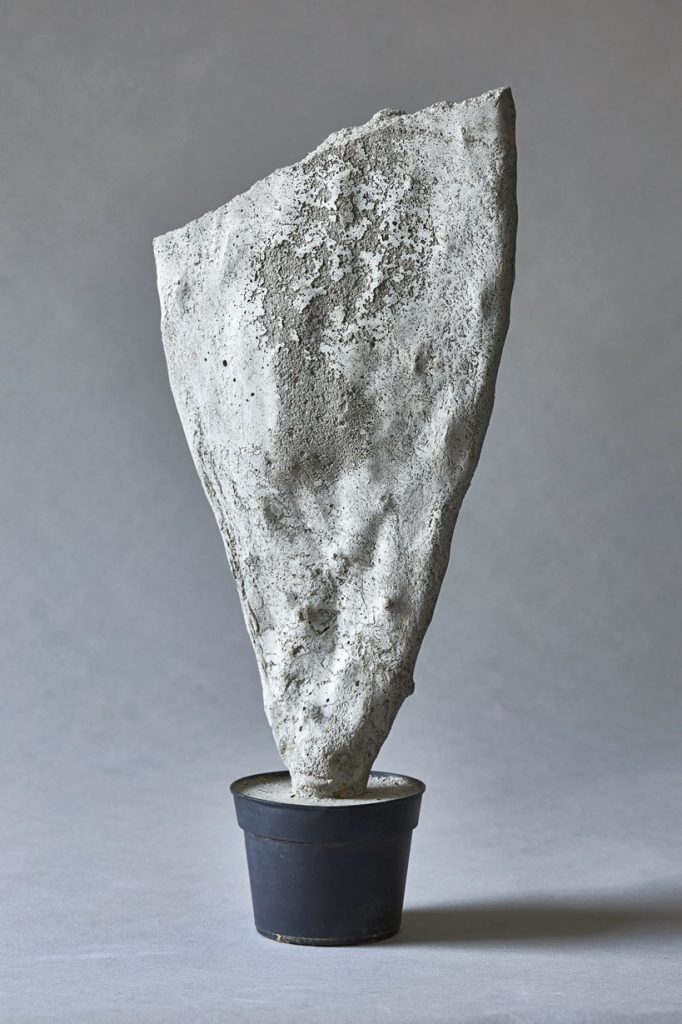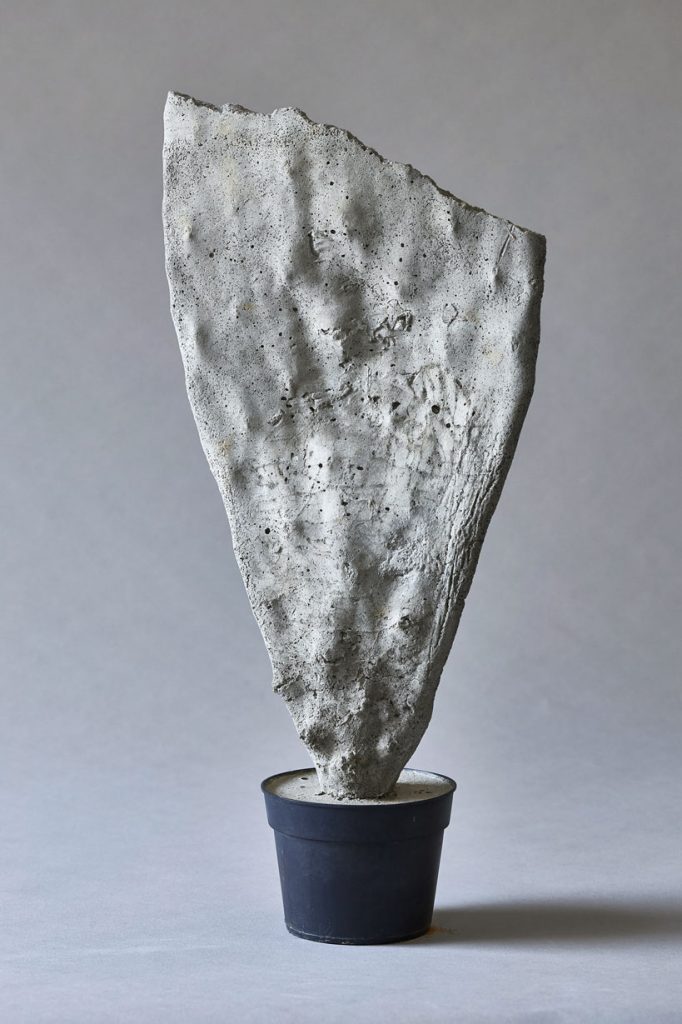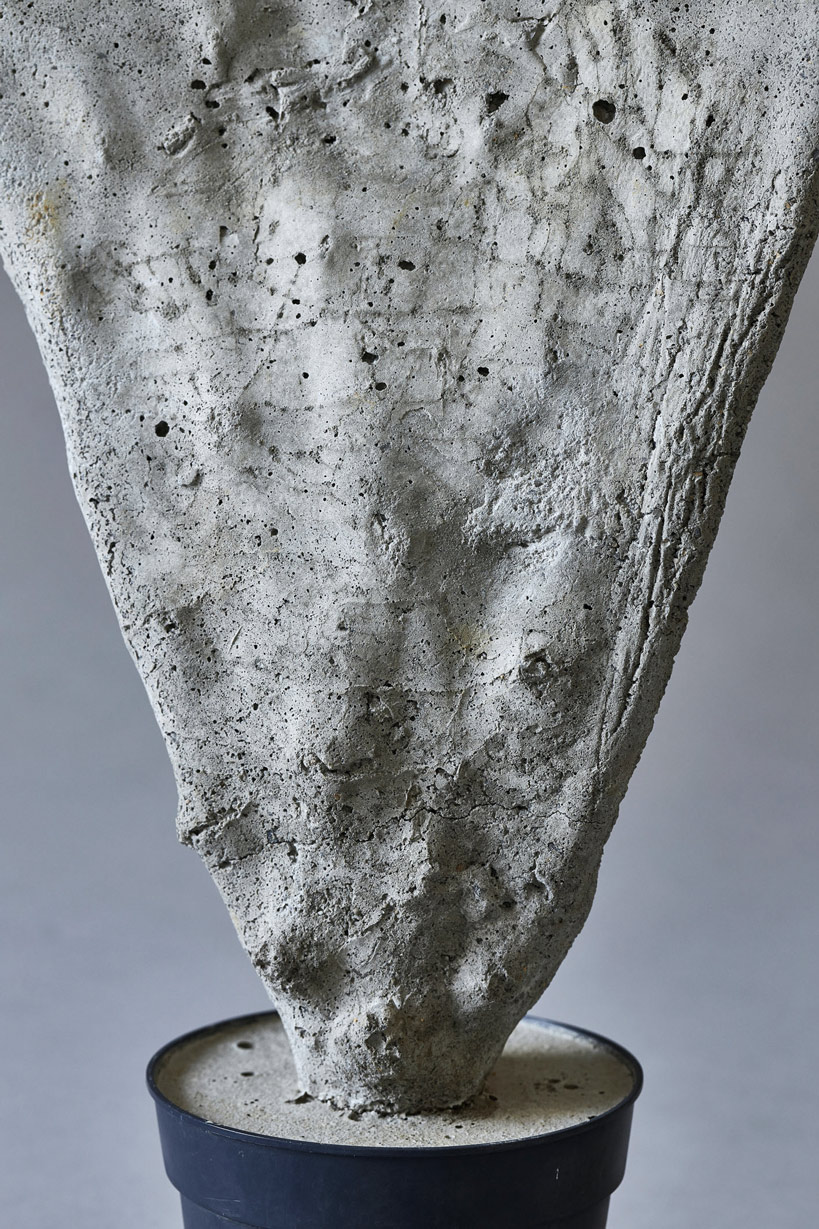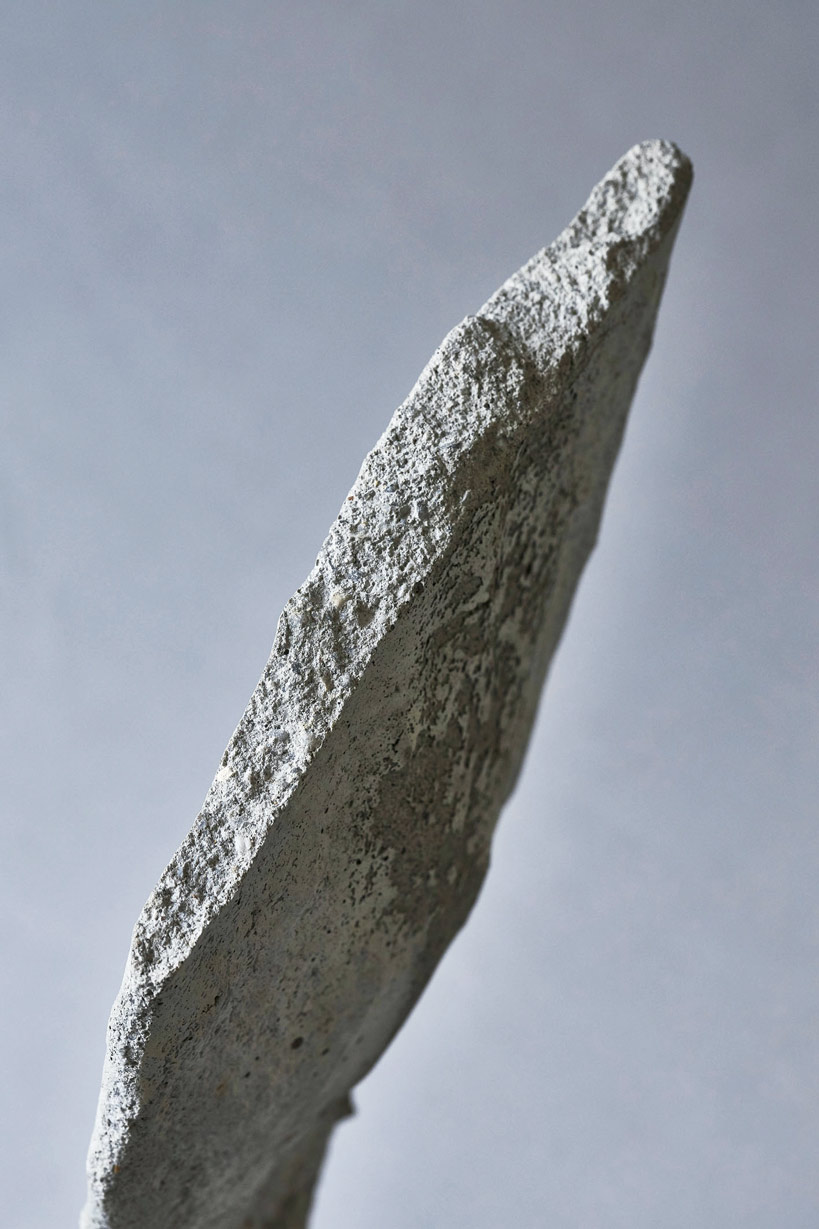The Patriot, 2021
Concrete, Plastic / height approx. 40cm
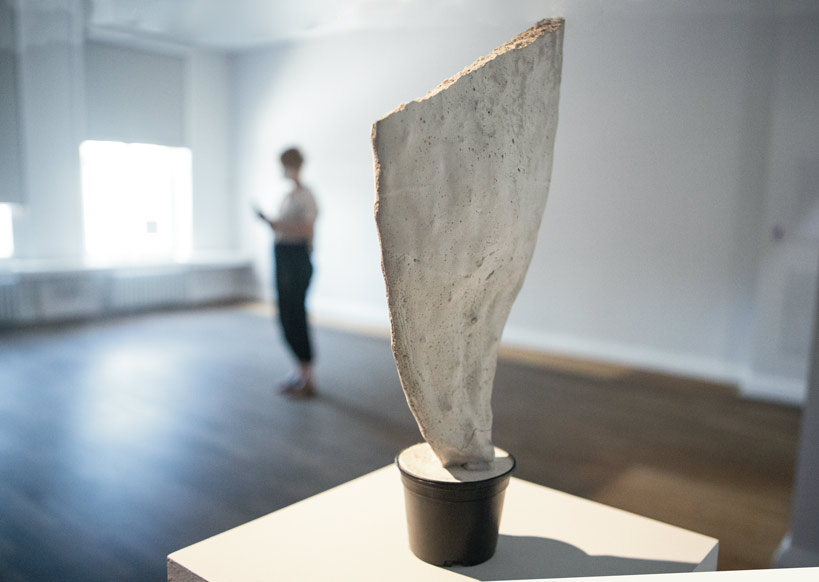
„A desert plant, a cactus species named Indian or Mexican prickly pear takes a central place in Michal Fuchs’ plastic works. This species has become native to Israel only in the 1920s. It is characterized by fast spread, adaptability, quick and durable rooting as much as its robustness, equipped with defensive spikes. For these reasons and in strange duplicity, both Israeli settlers and Palestinians have adopted this plant as a symbol. The term „Tzabar“, the Hebrew name for the cactus, is also used to describe a Jewish person born in Israel.
Michal Fuchs takes these meanings to question historical inscriptions and to critically transform them. Her plastic structures, cast in metal or concrete, follow the form of the plant up into its prickly leaves, but its main characteristics, resilience and rootedness are visually and material wise being turned into the opposite. Her metal works are often subject to the influence of water, exposed to erosion. Concrete as a material seems to be solid, but is endangered by impact or falling, not shatterproof. All of these works have in common, that they are unrooted, standing on „week feet“, limited by narrow containers. These „cactusses“ carry leave shapes they cannot offer stability.“
Jutta Jahn, curator of the exhibition „Innere Heimat“, Lichthaus, Halle (Saale)
Inspiration: Assem Abu Shakra: 1961-1990, Israeli-Palaestinian artist, born in Umm El- Fachm
